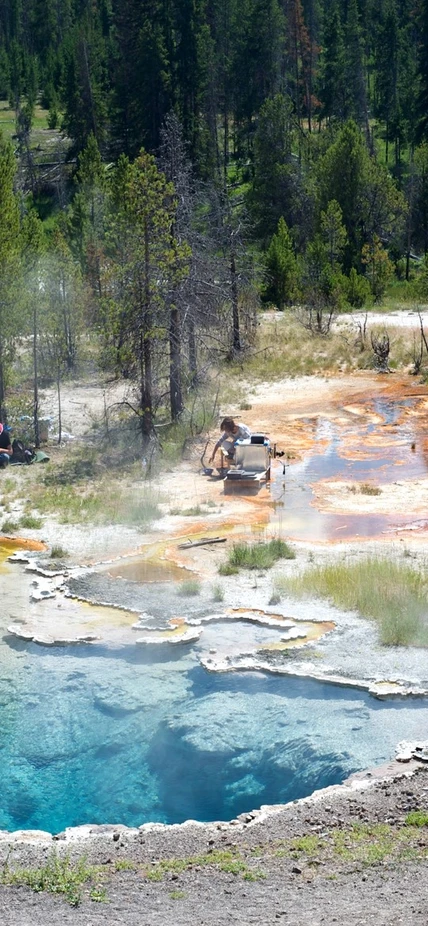Palo Alto, CA— Carnegie plant scientists Devaki Bhaya and Arthur Grossman received a nearly $2 million grant from the U.S. National Science Foundation and the U.K. Biotechnology and Biological Sciences Research Council to study photosynthetic microbes from Yellowstone National Park’s Octopus Spring.
Together with Seppe Kuehn of the University of Illinois at Urbana-Champaign and Alison Smith and Chris Howe from the University of Cambridge, Bhaya and Grossman plan to use samples from the field to reconstruct in the lab the highly organized communities of bacteria that carpet the hot springs in a mat-like structure.
They will deploy sophisticated techniques to probe the spatial, temporal, and metabolic dimensions of these microbial collectives, which share both labor and resources, allowing them to thrive in the extreme conditions of the hot springs, at temperatures that exceed 70 degrees Celsius (158 degrees Fahrenheit). This information will then be used to create models to predict the structural, functional, and regulatory dynamics that maintain these complex extreme-environment ecosystems.
“These thermophilic microbial communities are highly diverse,” Bhaya explained. “We plan to reveal the various structural and metabolic interactions among the component microbes, which are responsible for governing community organization under conditions in which most organisms would not survive.”
Added Grossman: “This information could help us to better understand other extremophile communities, such as the microbes that live around deep-sea vents, and to eventually improve other organisms’ abilities to deal with extreme environments, which may become more prevalent on our planet as the climate continues to change.”
Top Image Caption: Octopus Spring in Yellowstone National Park courtesy of Devaki Bhaya.
